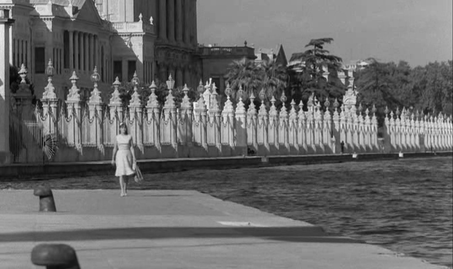 The directorial debut of novelist and screenwriter Alain Robbe-Grillet, L'Immortelle is a beguiling experience full of mystery and intrigue. The film follows a Frenchman who has just arrived in Instanbul. He meets a beautiful, mysterious woman, and they spend the next few days together wandering around the city, exploring its ancient culture. All of a sudden the woman disappears, leading the the frenchman on a journey to try and retrace his steps, eventually finding her only to lose her again. For those not familiar with Alain Robbe-Grillet's work it should be known that plot means very little, as the filmmaker is much more interested in experimenting with stunning, stylized visuals and narrative structure. The opening shot of the film should give viewers an idea of whether this is a film for them, featuring a tracking shot, seemingly from inside a car venturing down the Turkish country-side. The tracking shot is accompanied by a musical score that soon gives way to what could only be described as wild animal, followed by a woman's blood-curdling scream. If you are a filmgoer who wants everything explained than it's probably best to stay away, as everything in Robbe-Grillet's film feels very much up to interpretation. The mystery which unfolds in the narrative feels intentionally vague, delivering a film that, like life itself, is full of loose-ends and unsolved mysteries. While I'd be lying if I said I understood what exactly the film was trying to say, what has always stood out to me about Robbe-Grillet is how his film's subvert perception of time and space, as if the filmmaker views such staples of typical linear narrative storytelling as just another dimension to subvert and explore. While the film seems to have something to say about sexual obsession, love, the male gaze, and the destructive qualities of time itself, I think Robbe-Grillet's L'Immortelle is best looked as an exercise in storytelling, delivering a transfixing experience that's mystery maintains forever elusive.
0 Comments
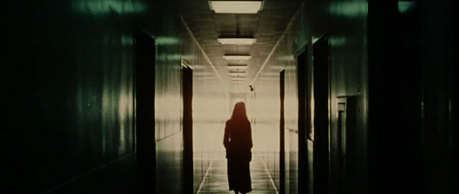 After receiving a series of strange and mysterious letters from her reclusive father, Arletty decides to head to his current locale, Pointe Dune, a small seaside town, in an attempt to understand her father's seemingly increasing madness. Upon arrival, Arletty finds her father's home empty with no clues to his whereabouts. While finding her bearings, she meets a trio of individuals who are investigating the local legend known as 'The Blood Moon' - an ancient curse that is believed to transform the local inhabitants into zombie-type creatures. Arltetty is reluctant to accept that anything supernatural is going on, but as she begins to read through more of her father's old journals, Arletty begins to suspect that something supernatural may be responsible for her father's disappearance. To classify Willard Huyck's Messiah of Evil as simply a zombie film is a gross understatement, as the film uses the tropes of the Zombie genre to create a unique and compelling horror film that relies heavily on atmosphere to create an overwhelming sense of dread. The film wastes no time injecting itself with atmospheric weirdness, introducing a off-kilter, ominous energy from the very start that is at first off-putting, due to its stilted-ness, but eventually intoxicating. Reminiscent of another highly underrated horror/thriller, Jeff Lieberman's Blue Sunshine, Messiah of Evil has a voyeuristic quality to its horror, giving off this ominous feeling that Arletty and her new-found group of friends are always being watched. The problem with so many zombie films these days is they simply don't understand the true terror this voyeuristic quality can have, the slow tension it creates and the power in the inevitability. In fact, that is what makes Messiah of Evil so engaging, this sense of inevitability, where it becomes increasingly clear that it's only a matter of time until Arletty suffers a similar fate to her father. This quality is groomed beautifully throughout Messiah of Evil through juxtaposition, as the film uses Arletta's father's voiceover to create a nice dichotomy between father and daughter, showing how she is experiencing the same slow descent as her father did before her. I really liked how in Messiah of Evil the transition to blood-sucker is gradual, with Arletta slowly beginning to realize she is losing sensory functions. This slow loss of sense and any ability to feel pain that Arletta experiences is just another great example of how the film slowly and methodically creeps towards its inevitably horrifying conclusion. Valuing a genuine atmosphere and tension over cheap thrills or graphic violence, Willard Huyck is a one-of-a-kind horror film that taps into the primal sense of unstoppable doom that made the zombie genre so beloved in the first place. 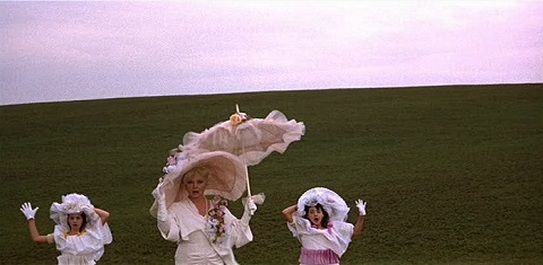 From what one can only assume is a semi-autobiographical film loosely based on Fellini and Boldrini's relationship comes Federico Fellini's Juliet of the Spirits, a delirious, albeit entrancing experience that attempts to examine the female psyche of a woman who is haunted by the realization that her husband may be cheating on her with another woman. Fellini's first film in color, it's obvious from the early stages of Juliet of the Spirits that their is a master filmmaker at work. With masterful use of technicolor, Fellini has created a wild film thats cinematography, direction, and production design all work together to transport the viewer into the psychological state of a woman who has reached a crossroads. Through this wild and surreal journey, Fellini captures the doubts, desires, and superstitious of this housewife, exploring femininity in a way that is at times fascinating but also incomprehensible. Juliet's psychological journey never makes it clear what is real or imaginary, offering up a surreal experience that is bound to frustrate as much as enlighten. The biggest problem with Fellini's extravagant film is that is lacks an overall vision, offering some poignant insights into the psyche of Juliet, like how she has insecurities about her appearance, but never fully developing into anything more than a frantic roller-coaster ride of doubt, emotion, and memory. Juliet is constantly pulled in all sorts of different directions in how to deal with her husband, and that perhaps is the most interesting aspect of Fellini's film, with Juliet of the Spirits capturing the complexities of our psychology. Juliet eventually finds some emotional relief towards the end of the film when she becomes empowered by realizing that leaving her husband is the only way to emancipate herself from this torturous situation, focusing in on her own happiness and not the voices of dissent that inhabit her life. While some of the film's psychological observations are astute, Federico Fellini's Juliet of the Spirits is a film where style and artistry trump substance, although it's a film that should be experienced for its aesthetic alone. 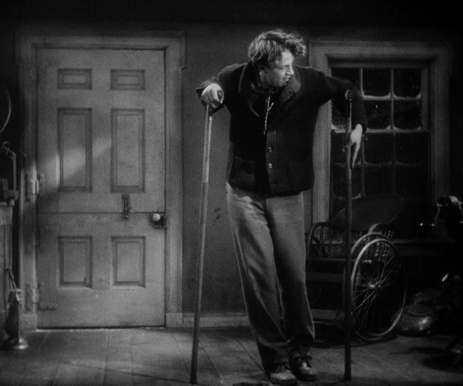 Taking place primarily at the end of World War I, Frank Borzage's Lucky Star is a wartime romance, telling the story of Mary, a poor farm girl, who falls in love with Tim, a recently returning soldier who was wounded during the war and lost the ability to use his legs. Pressed by her mother to marry another returning solider, Wren, Mary finds that she cannot help but still care for Tim, regardless of his physical ailments. Frank Borzage's Lucky Star is a simple, yet effective romance that's surprisingly nuanced for the time period. Firmly believing in the adage 'Love Conquers All', Lucky Star tells a tender love story which captures the selflessness of love, showing how two characters enable one and other to grow and become better human beings. Given the time period, Mary's character is noticeably younger than her two suitors, Tim & Wren, which leads to Tim routinely educating Mary on what it means to be an adult and the importance of respecting her mother, something that is quite noble considering the mother's disdain towards the idea of Mary marrying Tim. While much of the film finds Mary as somewhat as a passive presence among the two suitors in her inability to make her own decision, it's the finale where Mary's love for Tim leads to their salvation, as she gives Tim the strength and perseverance to fight through his shortcomings and fight for the woman he loves. Technically speaking the film is stylistically modest, though Borzage use of framing and lighting, while subdued, evokes the emotions of his characters. One of Tim and Mary's first encounters after the war is a great example of this, where on Mary's exit from Tim's house Borzage uses the window frame to symmetrically position both these characters at the center, jumping back-and-forth between both characters respective points-of-view in a way that visually expresses their strong connection and importance to one and other. Another great sequence is when Tim tries to use his crutches to stand for the first time. Struggling and ultimately falling to the ground, Borzage lights the scene in a way that finds Tim fall directly into the darkness of the foreground of the frame, another small but powerful visual way of expressing emotion, capturing Tim's struggle through the use of darkness and light. I also liked the clever metaphor centered around Tim's demeanor, a man who is portrayed as having a handyman mentality, the idea of making something out of close to nothing- a clever metaphor for Tim's personal journey which finds him overcoming his disability. Another interesting anecdote of Lucky Star is simply how startling it's in showing showing the harsh perceptions of the crippled at the time, showing how many individuals throughout the story, whether it be Mary's mother or Wren, viewed a crippled individual as a lost cause. Very much supporting the notion that love conquers all, Frank Borzage's Lucky Star is a incomplex yet powerful love story.  Sean Baker's Prince of Broadway uses intimate handheld photography to create a naturalist portrait of two men who hustle to survive in the underbelly of New York City's fashion district. Featuring a feeling of realism and authenticity that is typically reserved only for documentaries, Prince of Broadway follows Lucky, an illegal immigrant from Ghana, whose job requires soliciting shoppers on the street to a small storefront that specializes in knockoff brand merchandise. The store is owned by Levon, an Armenian-Lebanese immigrant, who operates the illegal storefront himself, making sure the backroom is always stocked with the most up-to-date knockoffs. One day, Lucky finds his entire world flipped upside down when a young baby is thrust into his life by an old girlfriend, who insists the toddler is his own child. Prince of Broadway is neorealist filmmaking at its finest, using the journey of two characters in Lucky and Levon to deliver a powerful examination of two unique men, each struggling with their own issues and challenges. While Levon and Lucky are on different financial levels and come from different backgrounds, Sean Baker's film slowly reveals how similar these two men truly are in the 'big city', as they each struggle to hold onto what is real in their lives. Each of these men's profession, which entails selling fakes for the genuine thing, serves as a symbolic representation of their personal lives, where each man goes through a journey to figure out what is real and what is fake in their lives. For Lucky, his lifestyle of hustling has enabled him to not take responsibility for his actions, and while the film doesn't state this in a straightforward way, it becomes clear as the film progresses that the truth of his life is this young child that he created. Levon's struggle is more centered around his faltering marriage, a 'green card'-inspired process that hasn't evolved past that stage. Levon's wife has grown tired of their forced relationship, though Levon himself is oblivious to the lie he is living. Typical of Sean Baker's work, Prince of Broadway does a fantastic job at making the environment its characters inhabit come to life - the honking cars, dingy street corners, constant movement, all working together to elaborately transport the viewer into this world. While I wouldn't say Prince of Broadway is as emotionally resonant as some of Baker's other efforts, it's another film full of moments of poignancy, delivering a powerful level of authenticity that isn't common in films today. 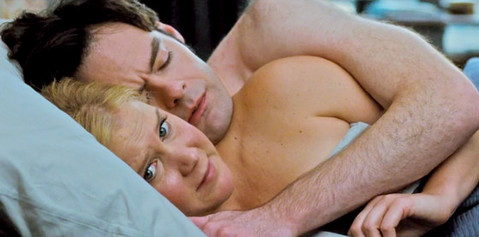 Having the belief that monogamy isn't realistic from an early age thanks to her father, Amy, a 30-something woman, lives a life of binge-drinking and one-night stands. Believing an uninhibited life free of societies boring romantic commitments is where she finds her sole happiness, Amy begins to question this notion when she meets a charming and very successful sports doctor, Aaron Conners. Judd Apatow's Trainwreck is very much a star vehicle for Amy Schumer, but while the film is quite funny and its intentions are novel, Trainwreck suffers dramatically due to a very unbalanced comedy and Amy Schumer's limited dramatic ability. While I find Amy Schumer funny, her brand of humor grows a tad tiresome with Trainwreck, a film that really becomes one-note in its sense of humor, lacking any rhythm to its narrative that just fields unbalanced and rushed. The film has funny moments for sure, but I couldn't help but feel it ends up taking the quantity over quality approach to comedy, throwing out joke after joke in an effort to see what sticks. I think my biggest problem with Trainwreck is it's being praised for something that it's not, masquerading as a romantic comedy that subverts gender roles and provides a unique perspective. Unfortunately it doesn't actually do much differently, falling into the same traps, being an old-fashioned romantic comedy that just puts Schumer in the archetypal male role. The character's arch are very much by-the-book and how Amy inevitably turns her life around feels a little simplistic given the true nature of her problems. To be fair, there are certainly still things to praise, but the most interesting aspect of Trainwreck is how it uses the character of Amy to capture how people judge others based off of what they are into or how they are, placing them in a nice neat box cause it is easier, instead of actually attempting to try and understand why things are important to different people. Apatow's film has small moments of quiet brilliance though, skewering the double standards of gender, sensationalist media, and the judgmental aspects of society, and while it's certainly his best film in a little while, Trainwreck is never able to overcome its host of other issues. 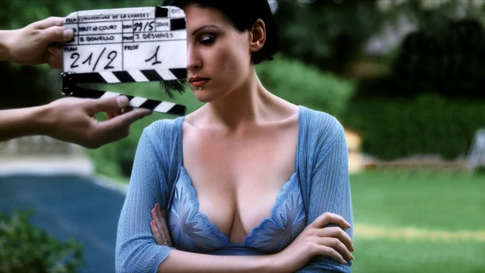 Bertrand Bonello's The Pornographer is a beguiling experience that uses melodrama and rich symbolism to touch on a host of existential observations related to passivity, happiness, art, and success. The film is centered around Jacques, a renowned pornographic filmmaker whose 1970s films have become some of the most financially successful porno films of all time. Decades later, Jacques finds himself financially burdened but unable to escape the porno scene, which has completely changed from its more artistic ambitions, digressing into perversion. As Jacques wrestles with his past, showing how his artistic ambitions fell at the wayside due to the promise of commercial success, Jacques has reached a personal and professional impasse that finds him attempting to reconnect with his son and find his innerself once again. The Pornographer is an quiet, alienating experience full of half-baked ideas and fascinating observations. Using Jacques personal struggle of seeing his perfection become completely devoid of intimacy and romance, Bonello uses the perversity of pornography as a symbolic representation of the emotional disillusionment of this main character, a man who feels lost, detached, and unable to find happiness. Jacques' son Joseph turned his back on his father years ago due to his father's pornographic profession, and as the two reconnect, Bonello begins to draw parallels between these two characters. We learn that Jacques entered porn as a form of rebellion in the 1960s, and with his son now being a college student and political activist, it begins to become clear that these two men are much more similar than they appeared to be. To me, the dichotomy between these two characters is the most interesting aspect of the film, as The Pornographer becomes an interesting film about the pursuit of happiness, capturing how the pursuit and perception of doing what makes you happy is never simplistic, showing how we as individuals are sometimes clueless to what happiness truly is and how to achieve it. We are all simply trying to respond to a world we can and never will fully understand, attempting to make sense of it all through various methods, whether it be financial or political activism. Bonello's The Pornographer is a lesser effort from the extremely talented filmmaker due to its opaque nature that gets in the way of its ideas at times, but the way Bonello uses a existential family melodrama to raise lots of interesting thematic questions and ideas is still worth moderate praise.  While there are countless "coming of age" stories, very few have managed to rattle me quite like Alante Kavaite's The Summer of Sangaile, a film that loudly pronounces the talents of a refreshing and unique voice in director Alante Kavaite. Taking place in the Lithuanian countryside, The Summer of Sangaile is centered around a quiet, angst-fueled teenager, Sangaile, who is too afraid of failure and the rejection of the world around her to ever totally be free. Vacationing with her family for the summer, Sangaile becomes enthralled with the world of stunt planes, though her own personal doubts and fears, something that is only re-enforced by her strict, cold parents, make it practically impossible for her to ever step into a cockpit. Through a chance encounter Sangaile meets Auste, a free-spirited and expressive woman who couldn't be more different, and as the two become more intimate, Auste becomes the spark needed for Sangaile to take a leap of faith, discover her individuality, and ultimately overcome her fears. Calling this film a story about "coming out" would be doing it a disservice, as Sangaile's journey to discover her burdening sexuality is just one piece of her the film's ability to capture a young woman becoming comfortable with herself. The Summer of Sangaile is about discovering oneself, the importance of individuality. Through the relationship with Auste, Sangaile discovers intimacy, the empowerment of being loved and showing love, something that eventually helps her overcome her deep-seeded insecurities and find her own strength. As powerful and well developed as the story and characterizations are, what makes them work and elevates The Summer of Sangaile is the superb direction. From the opening scene of The Summer of Sangaile it becomes apparent that director Alante Kavaite is a visually expressive filmmaker who relies heavily on image, sound, and symbolism to effectively transport the viewer into the psyche of her main protagonist. The sequence finds Sangaile watching the latest aerial show, intoxicated by the dangerous death defying stunts above her. The planes twisting and turning in the sky evokes a sense of true freedom, a visual symbolic representation of something Sangaile doesn't have, the first of many powerful uses of symbolism the filmmaking will use throughout this stunning film. The Summer of Sangaile's visual storytelling is lyrical and dreamlike, with Kavaite serving up a unique brand of visual poetry that captures the perils of its main character. From more simple aspects of the filmmaking like how the filmmaker uses extremely tight framing early on to express the unease Sangaile has when faced with intimacy, to dreamlike symbolism involving the freedom of the sky, and the tranquil aspects of nature, this is a film with a unique and stunning vision.  Asif Kapadia's Amy is a intricate and powerful documentary about Amy Winehouse which effectively shatters the public perception of this extremely talented artist, pulling back the curtain of her fame and public image, revealing a deeply troubled individual who was unable to find the help and support she so desperately needed. Given the nature of this documentary, the film has a very ominous and depressing weight to the whole experience, giving the viewer a detailed look at the long series of events that led to Amy Winehouse's tragic death. Using only archival footage and testimony from friends and family, the documentary has some impressive visual storytelling, chronicling Amy from an early age to the very end, effectively and profoundly capturing the underlying emotion of its subject in a very intimate way. The film paints a portrait of a woman who was extremely blessed with incredible talent but whose own emotional fragility and lack of a true support system led her down a treacherous path of drug and alcohol abuse as well as struggles with an eating disorder. The film showcases a woman that was consumed by the world around her, with the fame and celebrity effectively destorying her due to her inability to be a normal human being even to the people she loved the most. Amy needed support and wanted to be treated like a normal person but between her father and her long time boyfriend, two people she loved to a fault, she was unable to get what she needed. While some may argue that the film doesn't fully explore the importance on one having personal accountability of their actions, I'd wholeheartedly disagree, being that the film's strongest attribute is how it exposes how tough even that is when fame and success consumes your entire world. Music was Amy's outlet, her way of expressing herself, her personal self medication, yet as her fame increased she lost the ability to create for her own self, as the world and society itself wanted a piece of her talent. Through telling this tragic story of a great talent that was gone too soon, Asif Kapadia' Amy captures the darker side of fame and celebrity, capturing how our self-righteous and self absorbed culture indirectly pushed a fragile soul in Amy Winehouse over a cliff. 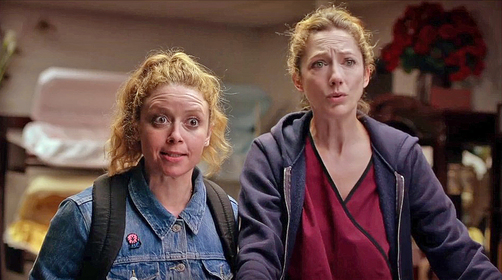 Jamie Babbit's Addicted to Fresno is a fun, playful dark comedy that manages to hit the right dramatic beats, delivering a film that is surprisingly powerful in its deconstruction of the negative aspects of dependency. Shannon, a sex addict, has just quit rehab and reconnected with his sister Martha, a kind, good-intentioned woman. Martha, a hotel maid, is able to get Shannon a job at her employer as well, but things fall apart quickly when Shannon's sex addiction leads to an accidental death. Addicted to Fresno is a fast-paced, unpredictable comedy that uses a sharp, edgy script and great lead performances to deliver a funny and resonant film about two sisters who are each struggling with their own unique set of issues. Judy Greer really steals the film as Shannon, a crude, cold buzzkill sister whose appetite for sex masks her hatred for herself. Not a satire like Jamie Babbit's wonderful But I'm A Cheerleader, Addicted to Fresno plays more like a traditional outlandish comedy, delivering set piece after set piece of hilarious absurdity. There are lots of memorable sequences in Addicted to Fresno, from Shannon's impromtu blowjob lessons sequence, to a hilarious bar mitzvah sequence involving a gangster rap loving 13 year old, but the film works so well thanks to its ability to touch on its dramatic beats in a very organic, heart-felt way. The film is a comedy first, but as it progresses it becomes increasingly clear that Shannon is a character who uses sex as a way of not having to deal with commitment, afraid of showing her feelings or letting her guard down, which turns out to be a very dangerous mix when compared to her kind-hearted sister. Martha is a character who is so intent on helping others that she doesn't spend the time to help herseflf, and the film's greatest dramatic aspect is its ability to capture how these two characters simply shouldn't be close to one-and-other, as they both inadvertently re-enforce each others bad habits. While those expecting another sharp satire like But I'm A Cheerleader are bound to be disappointed, Addicted to Fresno's still meets its lesser intentions of delivering an extremely funny comedic adventure with heart, making it one of the funnier films of the year. |
AuthorLove of all things cinema brought me here. Archives
June 2023
|
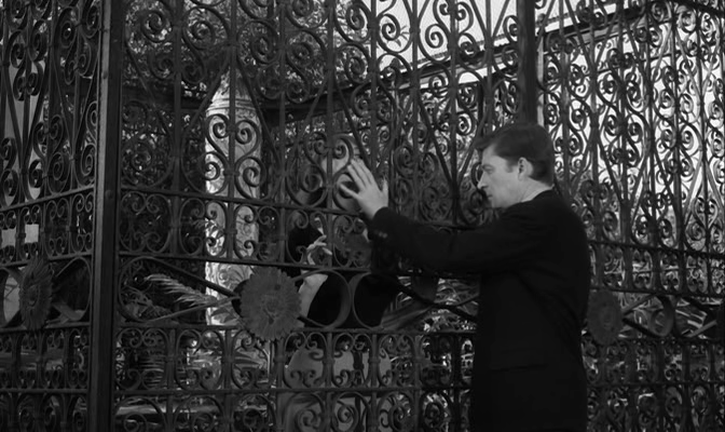
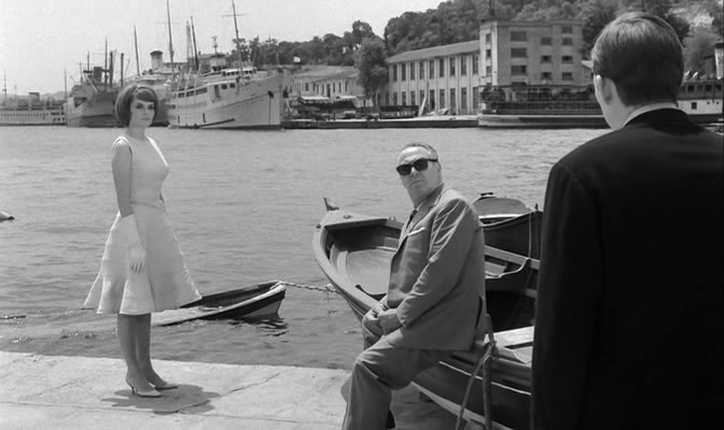
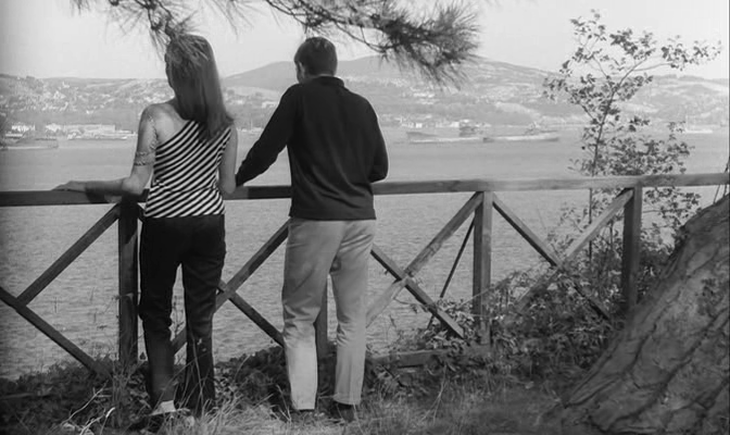
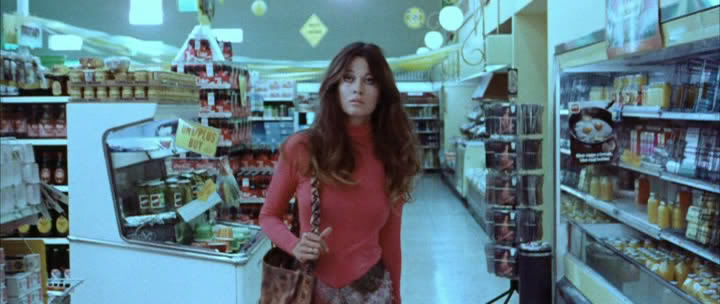
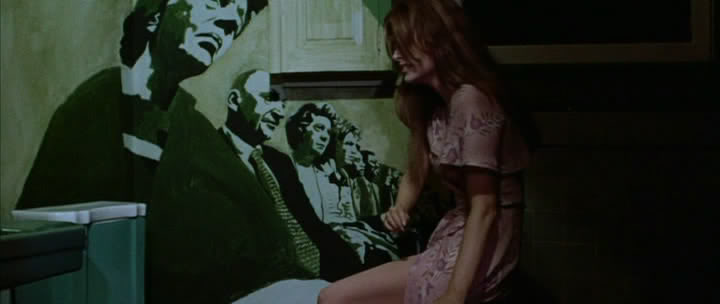
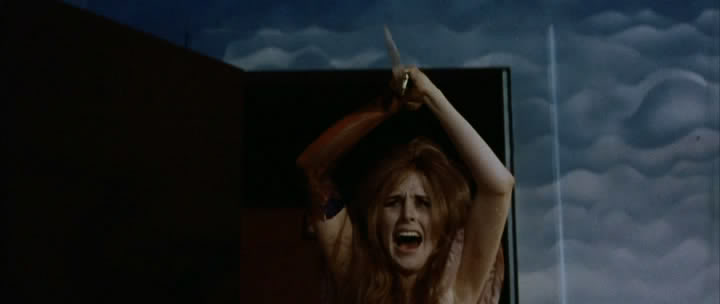
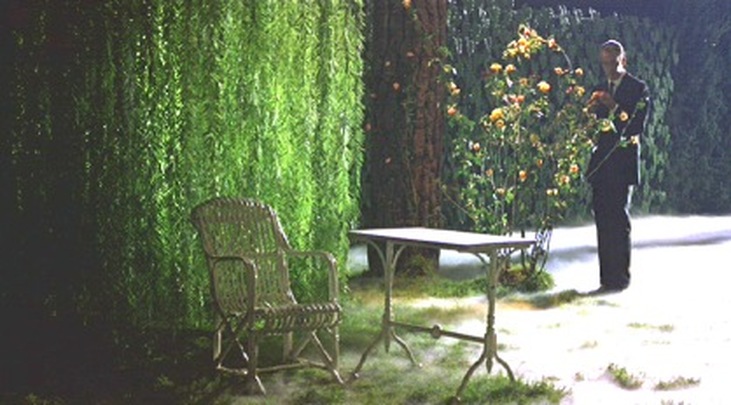
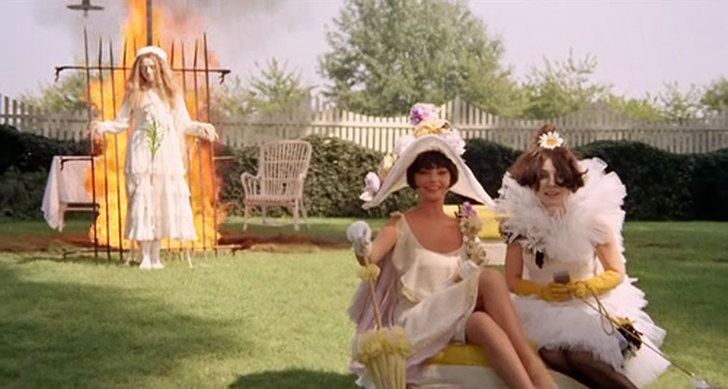
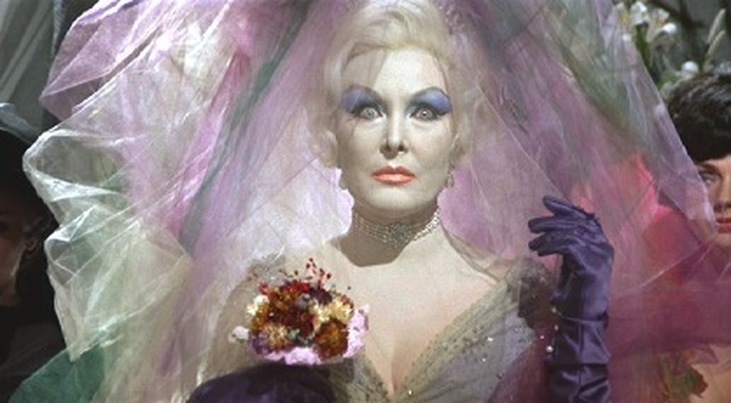
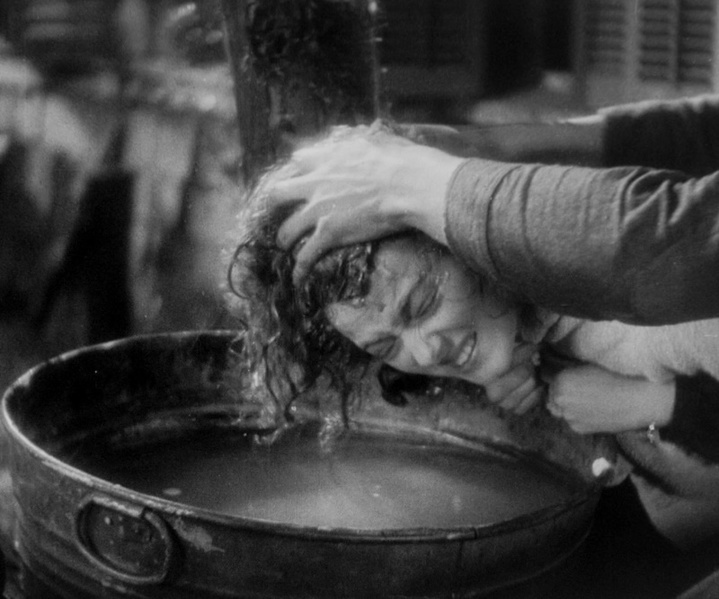
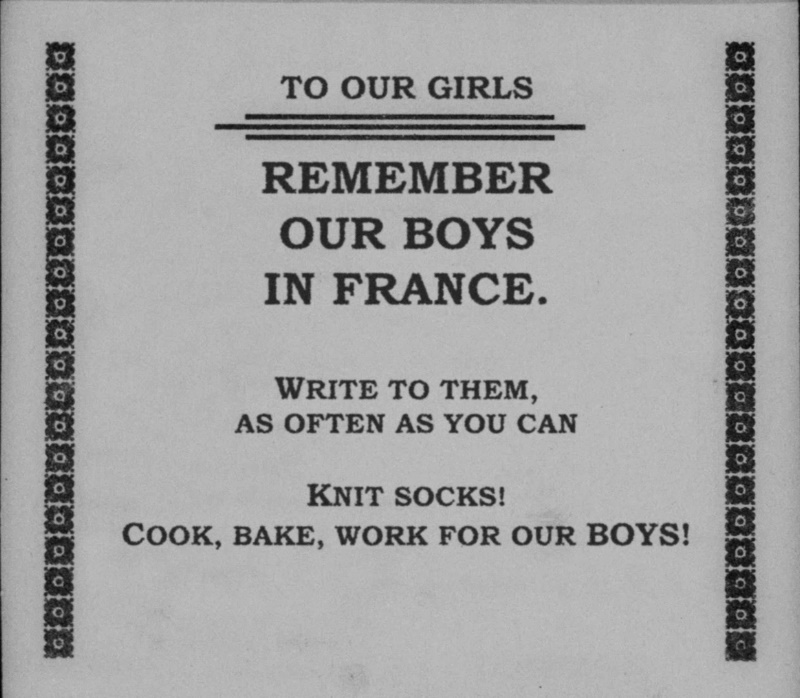
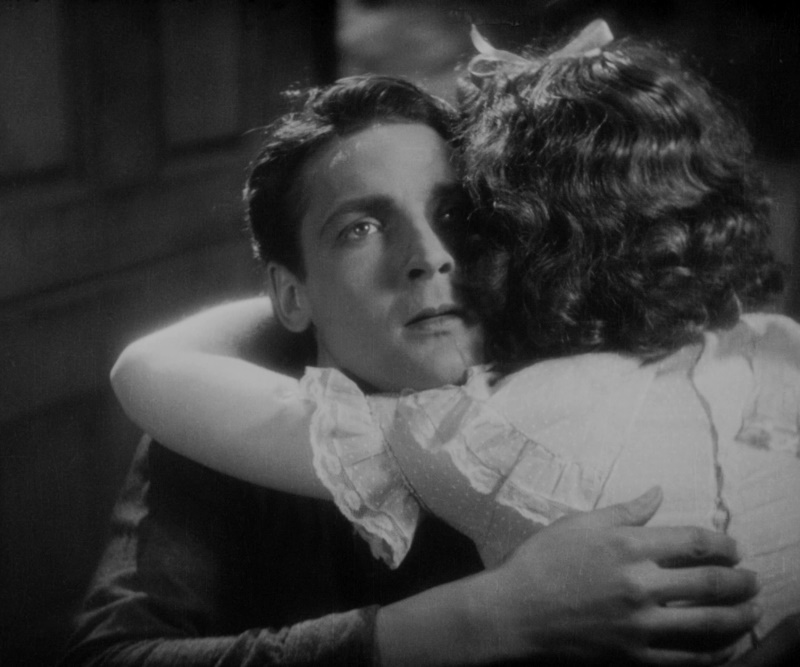
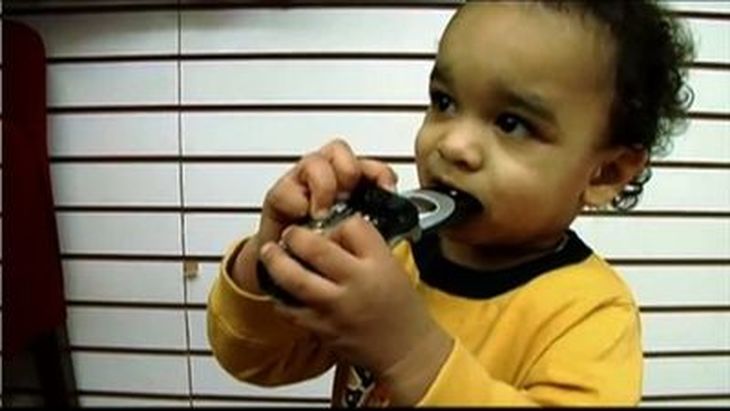
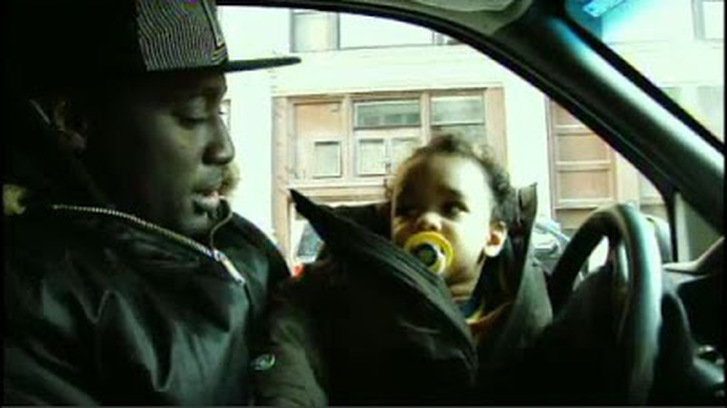

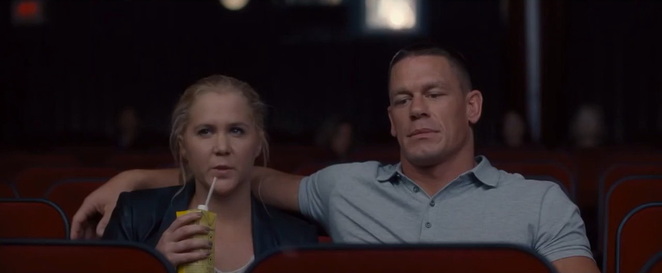
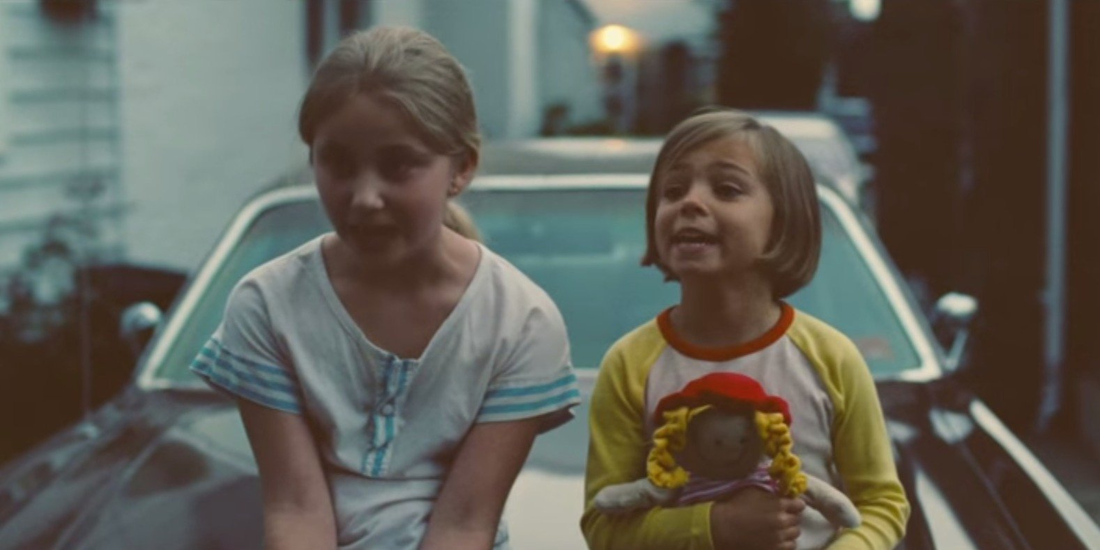
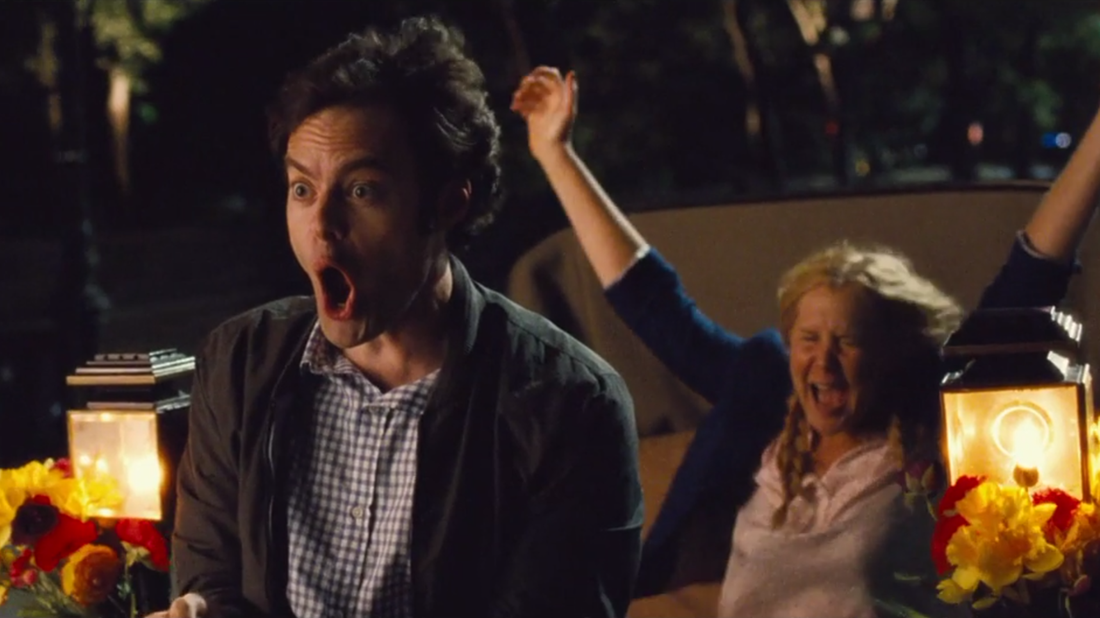
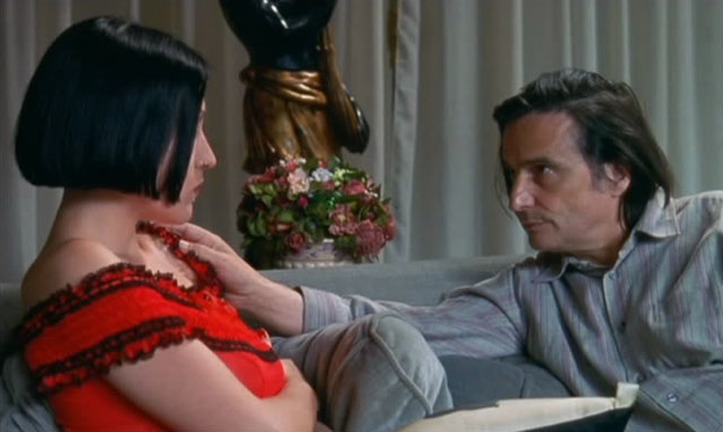
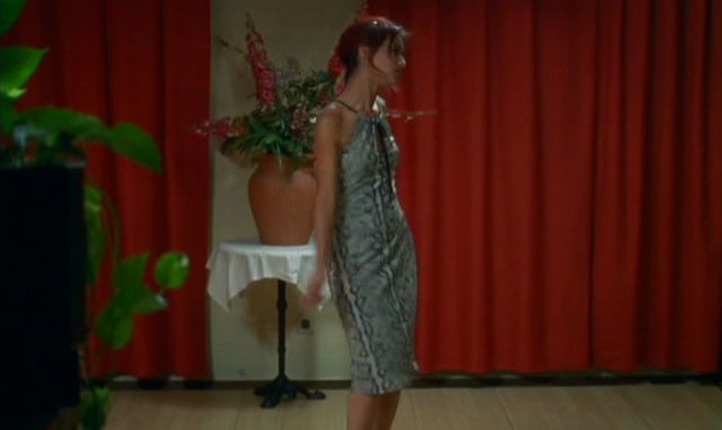
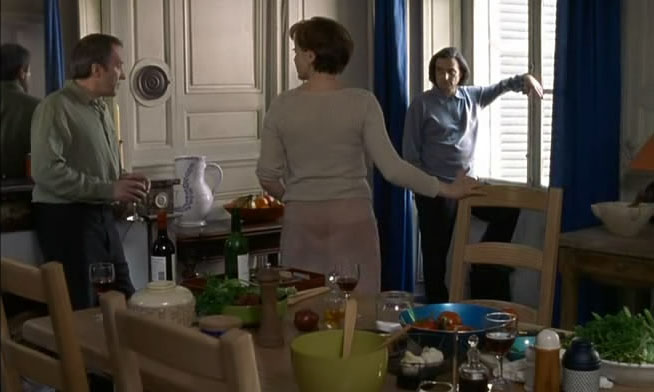

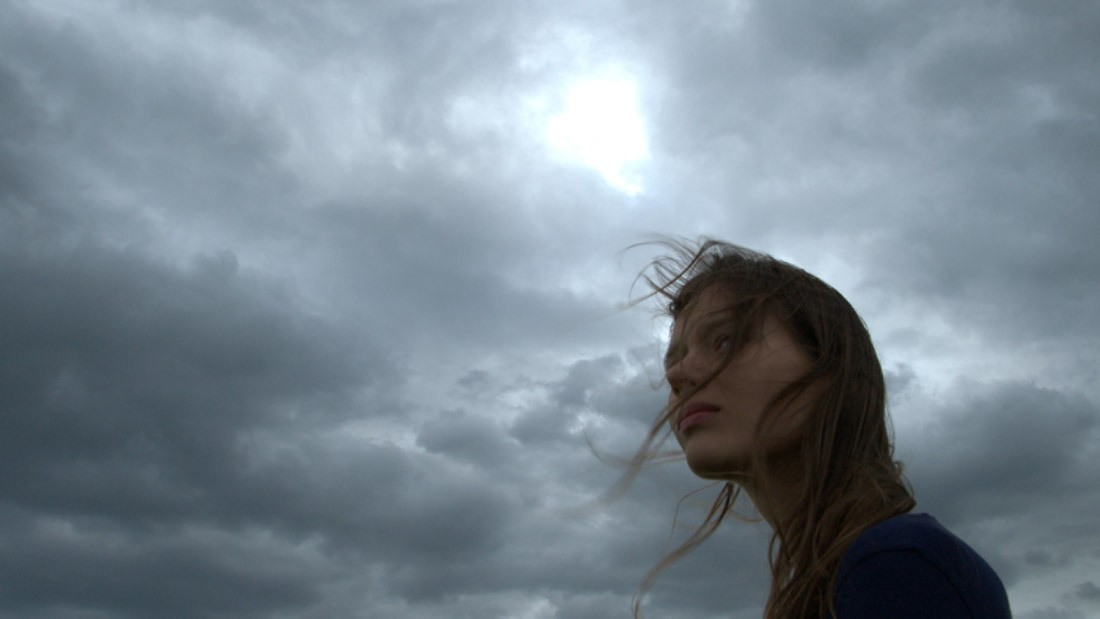
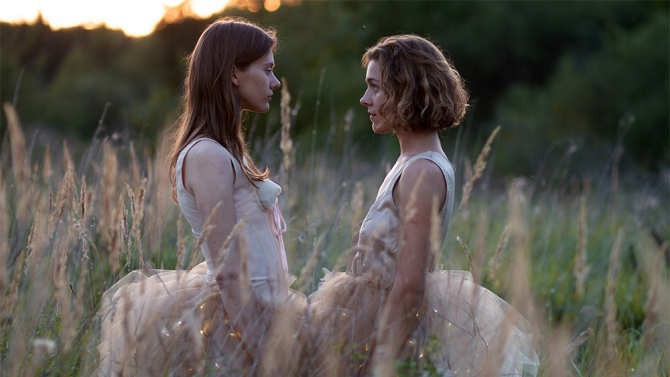


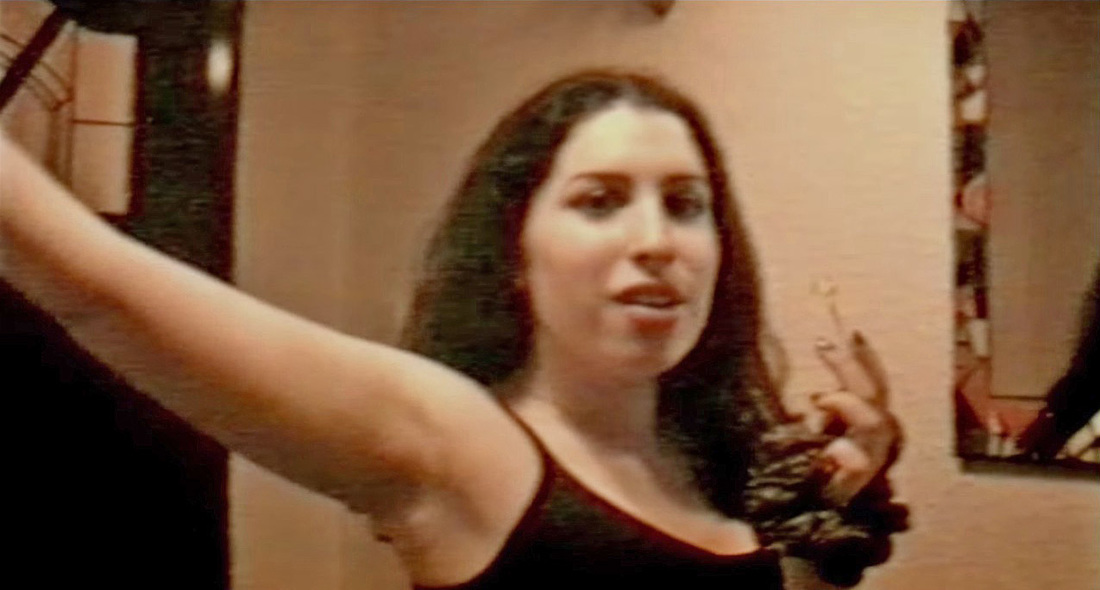



 RSS Feed
RSS Feed
